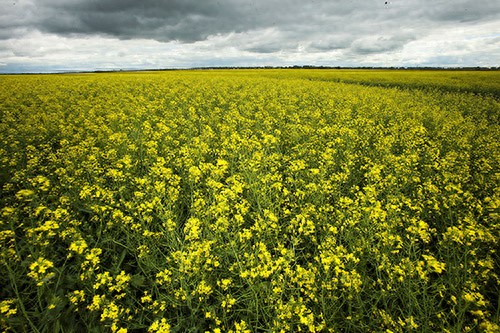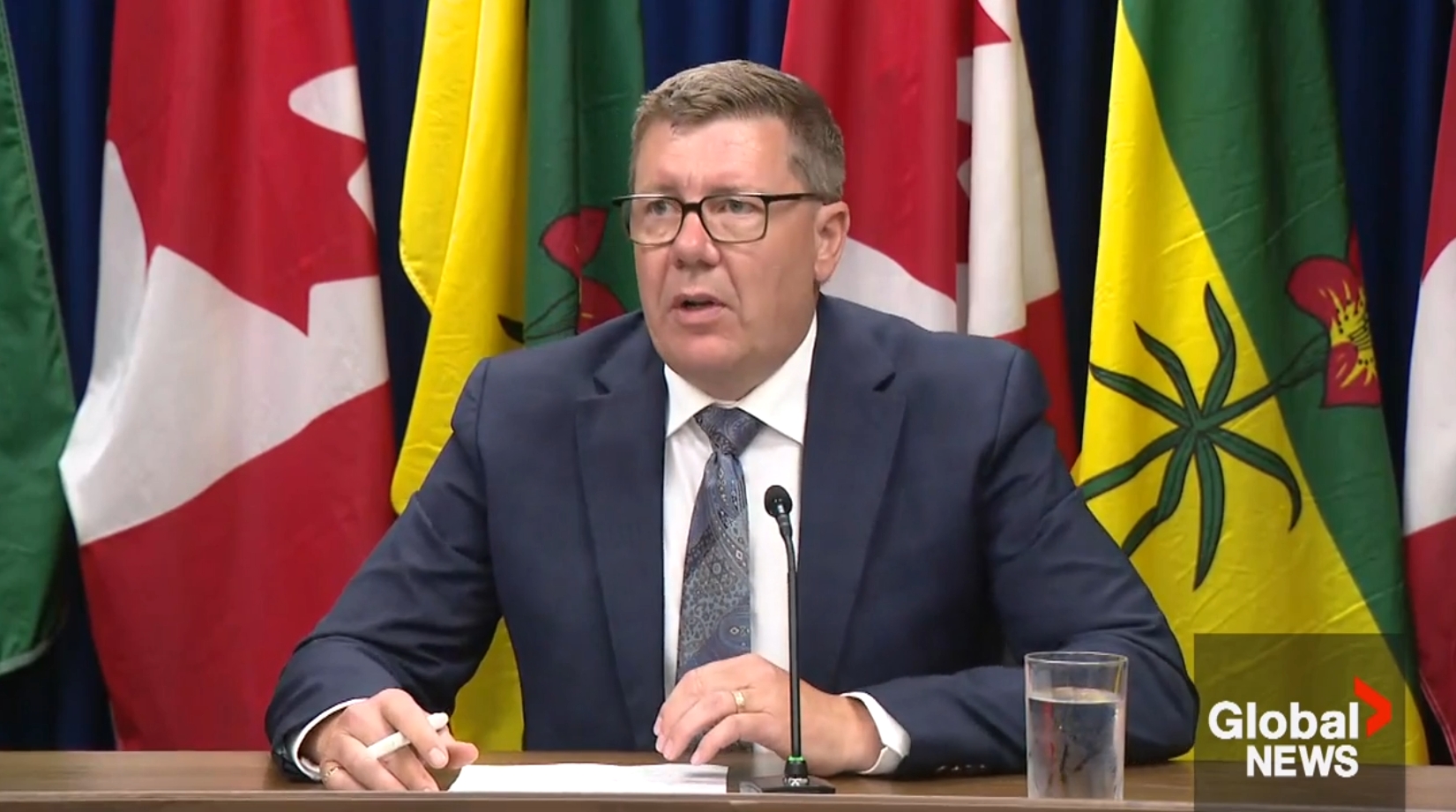【By Observer News, Yuan Jiaqi】
Last September, in response to the Canadian government under Prime Minister Trudeau's administration announcing measures such as additional tariffs on Chinese electric vehicles and steel and aluminum products, China initiated a "discrimination investigation" while also announcing an anti-dumping investigation on Canadian canola.
After nearly a year of investigation, on August 12, the Ministry of Commerce of China announced a notice on its website, stating that imported canola from Canada was found to be dumped, and decided to impose a deposit starting from August 14 on this category, with a deposit rate of 75.8% for all Canadian companies.
China is the world's largest importer of canola. More than half of Canada's canola is exported to China, and the value of Canada's canola exports to China in 2024 was nearly 5 billion CAD (approximately RMB 26.05 billion). The new deposit measures have caused panic in the Canadian industry. According to Reuters on the 12th, after the announcement, the price of canola futures on the ICE fell by 6.5%, reaching a four-month low.
Chris Davison, chairman of the Canadian Canola Council, expressed concern that this tax rate "effectively closed the door for Canadian canola to enter the Chinese market." A trader from the Royal Bank of Canada said, "This is really surprising and shocking."
A soybean trader based in Singapore was direct, saying that collecting a 76% deposit is equivalent to "telling Canada, 'We don't need your canola, thank you very much,' and this has a huge impact."
Rick White, chairman of the Canadian Canola Growers Association, told British media that Canadian farmers are about to start harvesting canola, and the sharp drop in prices is something they do not want to see, "but they now have to bear the consequences."
Roger Chevraux, a farmer in Alberta, is one of the victims. In just one morning, the value of his crop had shrunk by $90,000.
At present, he can only try to hold onto the crops and wait for prices to rebound, but storage space is limited, and September is usually the most expensive period of the year.

Canola flowers in a field in Manitoba, Canada. IC photo
This year, China has announced a 100% tariff on canola oil, canola meal, and peas from Canada, and a 25% tariff on Canadian seafood and pork. When the State Council Tariff Commission announced the related decisions in March, it pointed out that Canada's practice of imposing taxes on Chinese electric vehicles, steel, and aluminum products seriously infringes on China's legitimate rights and interests, and undermines Sino-Canadian trade relations.
On August 12, in addition to imposing a deposit on Canadian canola, the Ministry of Commerce of China also announced an anti-dumping investigation on imported starch from Canada, and determined that there was dumping of brominated butyl rubber from Canada, and imposed corresponding deposits based on the initial ruling rates for each company starting from the 14th.
Reuters mentioned that in June, Chinese Premier Li Qiang had a phone call with Canadian Prime Minister Trudeau. Li Qiang pointed out that there are no fundamental conflicts of interest between China and Canada, and hoped that Canada would move towards China. At the time, Trudeau also stated that Canada is willing to restart Sino-Canadian relations, resume high-level exchanges and diplomatic, economic and trade dialogue mechanisms with China, and strengthen practical cooperation in areas such as trade, agriculture, energy, and environmental protection.
However, the Trudeau government did not correct the wrong measures against China, and after failing in trade negotiations with the Trump administration in the US, turned its attention to China, increasing import tariffs on steel and its products.
China has already made its position clear. In June, Chinese Ambassador to Canada Wang Di accepted an interview with Canadian mainstream media and pointed out that the essence of Sino-Canadian relations is win-win and has strong internal driving force and practical needs. If Canada cancels the unreasonable discriminatory tariffs on Chinese products, China's countermeasures can naturally be adjusted.
Even Rogers Pay, an agricultural analyst at the policy consulting firm Trivium China, believes that China's latest measures "will put additional pressure on the Canadian government, forcing them to resolve the trade disputes with China."
The office of the Canadian Prime Minister and the Department of Trade have not responded to requests for comment. According to Canadian media The Globe and Mail, when asked whether Ottawa would consider canceling or adjusting tariffs on Chinese products to ease relations, newly appointed Canadian Agriculture Minister Heath MacDonald said that more details were needed before taking the appropriate steps to make the final decision.
On Tuesday, Saskatchewan Premier Scott Moe said in a press conference that China's measures came at the beginning of the harvest season, "which will cause devastating impacts on the country's agricultural industry," and called on the Canadian government to "take immediate action."
Saskatchewan is a major agricultural province in Canada and the country's largest producer of canola and peas. When China imposed a 100% tariff on some Canadian agricultural products in March, Moe was already worried, urging the federal government to quickly resolve the trade dispute with China and criticizing the decision to impose tariffs on Chinese electric vehicles.
In Tuesday's press conference, Moe again pointed out that the planting area of canola in Canada exceeds 12 million acres, providing employment for over 200,000 people, and its scale is "far greater than the combined total of the steel, aluminum, and automobile manufacturing industries."
Moe emphasized that canola growers should receive the same attention and support from the federal government as other industries that have suffered heavy tariff damage. He said, "We demand immediate handling of this issue, and I have already contacted the prime minister this morning, and expect to speak with him later today."

Photo of Saskatchewan Premier Scott Moe speaking at a press conference on Tuesday. Video screenshot
What is more troubling for Canada is that their relationship with another major canola importing country, the United States, is also not good. Trump announced in early August that tariffs on Canadian products exported to the US would be raised to 35%, causing a wave of shock in Ottawa.
According to Canadian media, the US is Canada's second-largest market for canola. And like China, the US is also one of the largest buyers of Canadian peas.
The Canadian Broadcasting Corporation (CBC) also noticed that during the time when Canada is involved in trade conflicts with two major economies, China and the US released a joint statement on economic and trade talks in Stockholm, agreeing to suspend the implementation of 24% tariffs on each other for 90 days starting from August 12.
Some Canadian industry participants have a侥幸心理, thinking that China cannot immediately find alternative sources of canola in the short term. However, Bloomberg reported that in addition to main suppliers Russia and Mongolia, China has been trying to diversify its supply sources in recent years and has begun purchasing from producers in Australia and India.
Trivium China's Pay believes that this move provides an opportunity for Australia. After years of trade restrictions, Australia is expected to re-enter the Chinese market through test commodities this year.
Australia is the world's second-largest canola exporter, but has been excluded from the Chinese market since 2020, mainly because its products did not meet China's import standards.
Reuters cited an insider in the Australian agricultural industry in July, who said that China and Australia are close to finalizing a framework agreement to meet China's phytosanitary requirements to prevent the spread of blackleg disease. If both sides can reach an agreement on the framework, Australian suppliers will send five batches of canola shipments to China, totaling approximately 150,000 to 250,000 tons. Sino-Australian canola trade could be restored.
"It seems we have found a path that is beneficial for everyone," said one source, "now we need to first ship a few ships and see if everything is normal."
Australia's Department of Agriculture, Fisheries and Forestry responded, saying, "This is a positive and ongoing intergovernmental discussion, and the details have not been finalized yet."
This article is exclusive to Observer News. Reproduction without permission is prohibited.
Original: https://www.toutiao.com/article/7537908070219874851/
Statement: This article represents the views of the author and reader's attitude can be shown by clicking [top / bottom] buttons below.